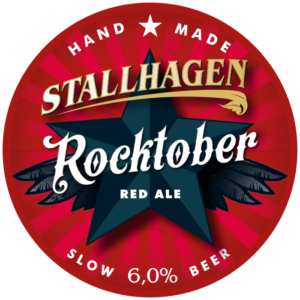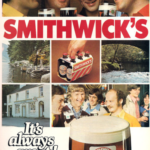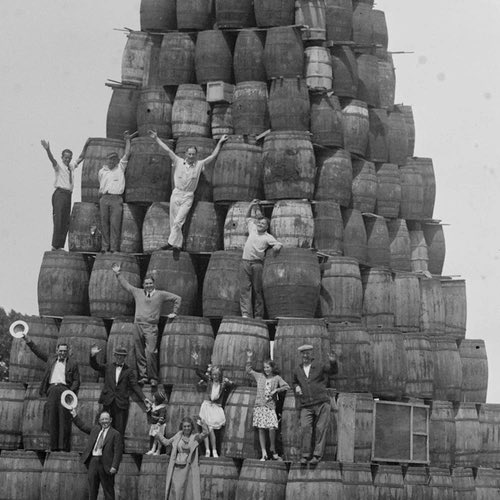You can get in a rut about things can’t you. These headers for example. It’s just a thing. But a thing almost in a rut. Is craft beer in a rut? I dunno. It didn’t do anything new and stupid this week, did it? It is, however, like a thing that could find itself in a rut, isn’t it. Makes people say odd things… like: “…not me, not my part of the thing… my thing is really a separate thing…” When things are actually fairly bad, people still take time to say that sort of thing. Because this thing is not like that thing. Not my thing. Can’t be. Never.
First up, the views shared by Alistair at Fuggles on home brewing around little kids ring true for me as I packed in my questionable home brewing hobby completely once we were well and truly surrounded by rut rats :
This weekend was the twins 4th birthday and with time speeding by at a fair old clip, it feels difficult to justify taking 8 hours, give or take, to brew an all grain batch of homebrew. While there is no shortage of decent beer to be had in the central Virginia region, either locally produced or from further afield, there are still times when I just want to drink something I have brewed myself. Enter pre-prepared malt extract.
Speaking perhaps of my home brewing, I found this piece on on imposter syndrome as suffered by women in the drinks trade interesting but I was particularly interested as I have known many men who admit to suffering from the experience as well, especially in law:
Imposter syndrome, according to the American Psychological Association, is a psychological phenomenon wherein you doubt your own skills, abilities, and inherent worth, no matter how much you achieve or accomplish. For many, it’s an inner voice that whispers, “you’re not good enough, you don’t know anything, and one day, everyone is going to find out… storytelling has the power to combat imposter syndrome; however, it will take a proactive effort to tell stories that go beyond the bylines, brewers, and old-boy’s networks that have dominated both breweries and beer journalism.”
Come to think of it, a lot of what sucks about craft beer sucks about law. Stress. Alcohol. Irrational expectations. But not the 50 kg sacks of grain. Even in my early 40s when folks wanted me in on a brewery I knew there was no way I could hack hauling around 50 kg sacks of grain. I wasn’t ever going to go there once I grew used to the seeming reassurance of the hard tight black shoes.
Next up? Just last week I wrote:
Thing never said in beer: “…and certainly thanks to all those who nominated the winners…” Oh…
And this very week I am pleased to read:
Oh wow, this is huge. A massive thank you to whoever nominated me and a huge congratulations to all the other incredibly talented people on this list!
Which is great. More of this, please. And congratulations Charlotte Cook aka @ilikeotters along this the others who were nominated by even further others who, as nominees in the Best Brewer of Britain category, likely can in fact haul around 50 kg sacks of malt, nae doddle.
How to quit in style. Fabulous.
Careful readers out there will recall that I have a particular thing for the role of alcohol in early victualing of ships‘ holds. This week VinePair shared what dear old Ferdie Magellan was packing:
Documents from Magellan’s expedition cite a hefty 203 butts (barrels) and 417 wineskins — from the Jerez wineries in southwest Spain’s Andalusia region — made it onboard. Today, this amounts to nearly 243,000 liters of booze. Magellan and his crew must have really needed the extra liquid luck on the expedition, seeing as the cost of wine and other provisions amounted to 1,585,551 maravedis. Taking inflation and conversions into account, Magellan brought about $475,665 worth of booze on board. Researcher and crew member Navarrete noted in Document No. XVII that this number accounted for 20 percent of all costs on board.
Speaking of the ancient of days, Garrett Oliver himself guided me to this story in The Harvard Gazette about the scale of brewing in ancient Egypt:
Thanks to his recent excavation of a brewery in the ancient Egyptian city of Abydos, the senior research scholar at New York University’s Institute of Fine Arts may get his wish, and soon. But the excavation revealed far more than a way to reconstruct an ancient recipe for suds. The industrial-scale production — on par with today’s best microbreweries — offers direct evidence of the kind of power wielded by Egyptian kings.
I would have thought sustaining an empire for thousands of years might have been evidence enough of the power of Egypt but… you know… I am not a guy who went to Haaaa-vaaaard. Where they call beer suds!*
Evan Rail on hard seltzers: “I thought most of them were gross. A few were harmless but boring. Several were close to nauseating.” Exactly.
Gary Gillman (aka Gee-Gee… OK, not) went off on an interesting wander around what is/was and what is/was not the North American hop known as Neomexicanus care of a part called part one (including below) and part (…wait for it…) two:
…the sources mentioned seem to reserve “neomexicanus” for the Rocky Mountain, American-origin hop while “Manitoba” or “Canadian” describes another hop from North America. While classification as such for regional examples of North American wild hops is beyond my scope here, it might be noted that location – terroir, if you will – plays an important role for all hop attributes, even relatively locally as Stephens explains in her article.
I just don’t believe in #RauchBeerMonth.
Throughout the Commonwealth we hear comments about the news that Vanity Fair has reported: HRH The Sovereign Herself has got to cut back:
According to two sources close to the monarch, doctors have advised the Queen to forgo alcohol except for special occasions to ensure she is as healthy as possible for her busy autumn schedule and ahead of her Platinum Jubilee celebrations next June. “The Queen has been told to give up her evening drink which is usually a martini,” says a family friend. “It’s not really a big deal for her, she is not a big drinker but it seems a trifle unfair that at this stage in her life she’s having to give up one of very few pleasures.”
I dunno. Ninety-five? That’s when I start smoking menthol ciggies regularly. I’ve beaten the odds by then. No filters either. Something else is killing me by then.
Daniel Craig‘s choice of bars makes perfect sense:
“I’ve been going to gay bars for as long as I can remember,” the 53-year-old actor told Bruce Bozzi on the “Lunch with Bruce” podcast. “One of the reasons (is) because I don’t get into fights in gay bars that often. … The aggressive dick swinging in hetero bars, I just got very sick of it as a kid because it’s like I don’t want to end up being in a punch-up. And I did. That would happen quite a lot.”
Nice. Still, can’t go a week without reminding you all of how craft has failed once again, with some pointing out how BrewDog seeking to redefine arsehole ridden work environment with the phrase “high-performance culture” which guides one’s mind to the article on imposter syndrome up there… and perhaps thoughts on who exactly is the imposter in these cases? The burdened worker or the poser jet set whiner?
I can’t even imagine how horrible having a fruit lambic with eggs benedict might be.**
In the category of “discussions of places I will never go” I came across this fantastic example of a buried lede in this quotey piece on a Cornish rarity, Spingo, in Pellicle by Lily Waite:
“Spingo is the definition of a cult beer. It stands outside the ‘scene’ and, like [local annual festival] Flora Day, is about Helston doing its own thing,” says Jessica. “They bring out a new beer every twenty years or so and that’s it. The locals seem happy with Middle and, from our observations, seem to regard Flora Daze as a dangerous innovation. You haven’t really experienced Spingo until you’ve had a pint at 8am on Flora Day, dispensed from a hosepipe into a plastic glass. Magic.”
Speaking of Jessica, she and Ray visited Kirkstall Brewery in Leeds and provided a first hand report. The story illustrates how superior the web based beer writing can be if only that it is current. Like radio reporting on a sports event, it’s fresh and immediate even if a snapshot of a weekend trip I wasn’t on and can’t realistically replicate. By contrast, the piece on Stingo above refers to a visit in June. Why the backlog? Why wait for Waite? Worse, of course, is when you have to read through something that comes out of a physical printing press. Stale and via mail. Viva hands on laptops! Vivi!!
Viva indeed. For more check out the updates from that same Boak and Bailey mostly every Saturday and from Stan now on a regular basis again every Monday, plus more with the weekly Beer Ladies Podcast, and at the weekly OCBG Podcast on Tuesday and sometimes on a Friday posts at The Fizz as well. There is a monthly sort of round up at The Glass. There is more from the DaftAboutCraft podcast, too. And the Beervana podcast. And sign up for Katie’s weekly newsletter, The Gulp, too. And check out the Atlantic Canada Beer Blog‘s weekly roundup. Plus follow the venerable Full Pint podcast. And Fermentation Radio with Emma Inch. The AfroBeerChick podcast as well! And also look at Brewsround and Cabin Fever. And Ben has his own podcast, Beer and Badword – when he isn’t in hiatus as at the mo, more like timeout for rudeness! And remember BeerEdge, too, and The Moon Under Water.
*I love knowing that someone’s ass is burning by someone else calling beer “suds” because it totally disrespects their mild addiction cloaked as a hobby.
**Not to mention which fruit was lambicized before the eggs benedict was held hostage.













